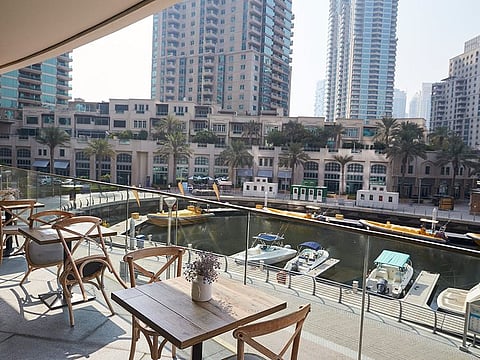Jointly Owned Property Developments in the UAE - who has the final say?
Homeowners vs management companies vs developers: Who has control over your property?

There has been a lot of talk recently about the management of buildings and developments in Dubai and paying service charges during times when the common facilities in jointly owned property developments (“JOPDs”) were closed due to social distancing rules. Homeowners are now taking a look at the management operations of their building developments and how they can get involved and understand the functioning and management of their units.
Here are a few points that would possibly clear up some of the issues relating to the management of property developments in Dubai.
The current law and key issues
Dubai Law No. (6) of 2019 Concerning Ownership of Jointly Owned Properties in the Emirate of Dubai (the “Law”) was promulgated to regulate the operation and management of not only jointly owned property developments but also to regulate real estate development projects which will ultimately constitute jointly owned properties. The law applies to all development projects in Dubai and how jointly owned properties are regulated under the supervision of the Dubai’s Real Estate Regulatory Agency (Rera).
What are JOPDs?
JOPDs are buildings or developments which are built with the intention of delivering separate title to each of the distinct units therein, whether residential apartments, offices or commercial units, or a combination of these. The “Law” has identified three separate categories of JOPDs, namely, Major Projects, Hotel Projects and Real Property Projects (other than Major Projects and Hotel Projects), meaning such developments made up of residential apartments and could include office and retail units therein, which do not fall into the first two categories.
Management of common areas
Under the Law, owners associations no longer exist and JOPDs are managed by the developer or by management companies and owners’ interests are overseen by an Owners Committee and by Rera, with members of the Owners Committee being approved by Rera. Anyone who has purchased a unit in a JOPD and is a resident can apply to be part of the Owners Committee.
Depending on the category of the real estate, either the developer or a management company will be responsible for the management of the common areas, as follows:
For Major Projects, the developer, or a management company appointed by the developer, will be responsible for the management, operation, maintenance and repair of common areas and facilities’ services with this function overseen by an Owners Committee made up of occupying owners;
For Hotel Projects, a specialised Hotel Project management company must be responsible for such management in accordance with the controls approved by the Dubai Land Department. There is an option relating to the constitution of an Owners Committee determined by the Hotel Project Management Company, in this situation, the Owners Committee will not have the right to interfere in the management of the Hotel Project or the common areas;
For the third ‘other’ category, which is applicable to most residents in Dubai, the common areas shall be managed by approved management companies, which shall be selected and contracted by Rera in accordance with Rera’s criteria. Here too there shall be an Owners Committee, which will be comprised of members of the resident owners as determined and approved by Rera.
Protections introduced for owners
Some of the provisions under the Law which grant rights and protect the interests of owners within JOPDs are:
Article 21, which states that no amendment shall be made to the terms and conditions governing the development and operating of jointly owned property developments and their common property (including the complex's planning and construction standards and anything that may have an effect on the rights of purchasers) without obtaining the consent of the Rera;
Article 27 requires the Rera to approve all fees in relation to management, operating, maintenance and repair of common parts or facilities; and
Service fees that are collected are to be placed in a bank account that may not be seized in favour of the management company’s creditors, thereby providing further protection for owners under Article 30 of the Law. Additionally, such funds may be used only for the purposes as enumerated in the Law.
Ultimate Management and control
The Law has brought about changes in the jointly owned property landscape such that the management and operations are mostly now in the hands of professional management companies with the appropriate skills, whilst still providing for oversight by the property owners.
The Law has introduced accountability for developers and managers and the increased involvement of Rera as a supervisor should lead to increased overall protection for owners to ensure and enforce their rights. The Law will also promote transparency with approvals required for increases in service charges and some control over expenses for which an annual budget is required. The Owners Committee which has the power to question the actions of the developers and the association managers (including the questioning of annual budgets and making representations to Rera) will be made up of residing owners and will likely promote and safeguard the rights of all co-owners in the JOPD.
Rera may reconstitute the Owners Committee at any time should it have reason and as far as developers are concerned, they cannot be members of the Owners Committee unless they own unsold units in the JOPD.
So to answer the question of final control, the management companies in JOPDs will have control of the day-to-day management and operations of the JOPDs. The next level up would be the role of the Owners Committees as supervisor and representative of the owners before Rera and then finally it would be Rera that would have the executive powers over appointments and removals.
The author is the head of indirect tax and conveyancing at BSA Ahmad Bin Hezeem & Associates



